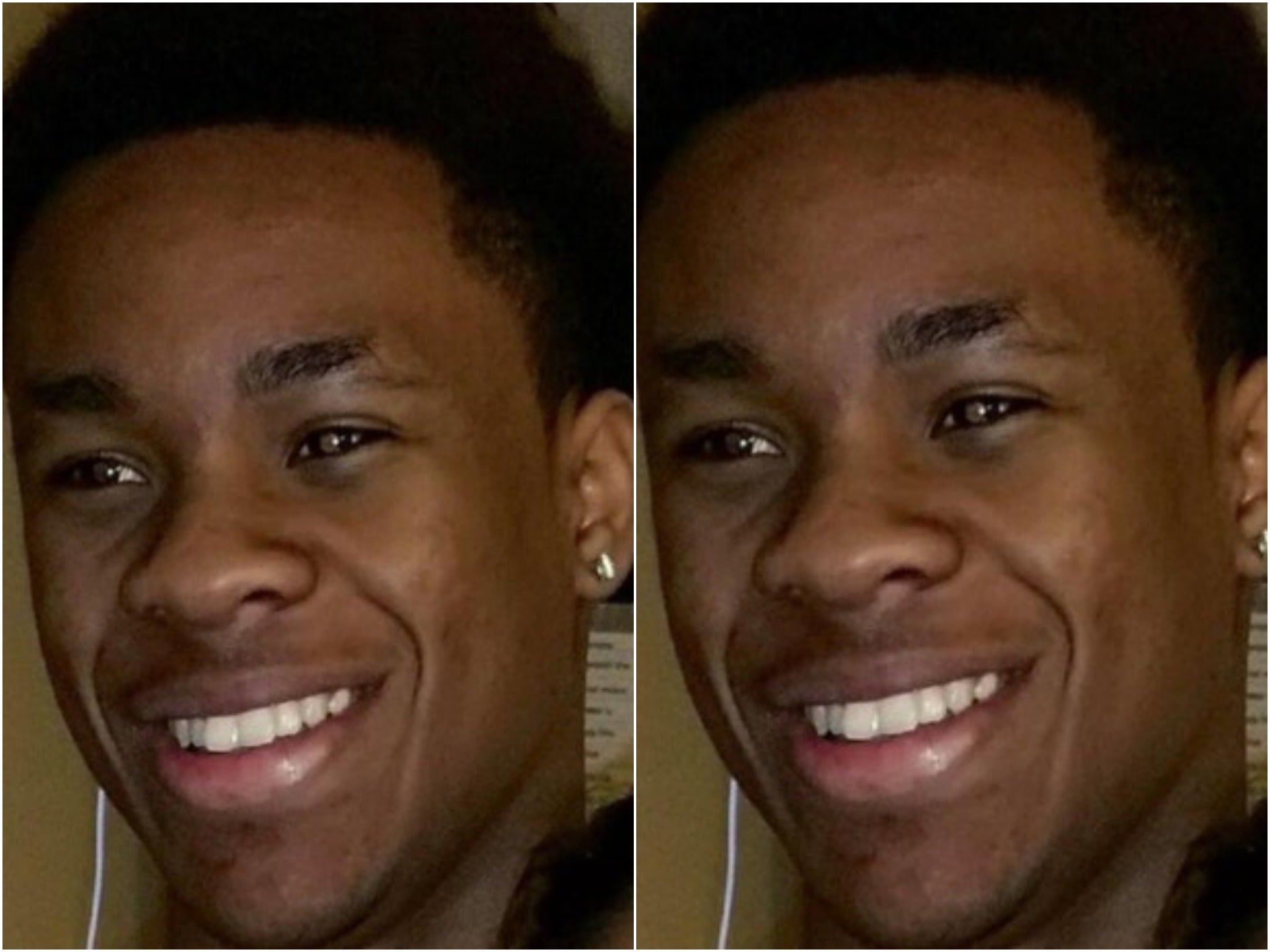
The Minneapolis police officer who shot and killed Amir Locke in early February was a field training officer (FTO), lawyers representing Locke’s family have claimed. The officers who were responsible for the infamous police killings of Daunte Wright and George Floyd were also field training officers.
As an field training officer, MPD Officer Mark Hanneman, who shot and killed Locke, 22, during a highly controversial no-knock SWAT raid on 2 February, would be responsible for teaching other officers about use-of-force tactics and protecting legal rights during police work.
“The information about Officer Hanneman serving as an FTO appears to be the latest example of how bad practices continue to be passed down to new officers in departments like Minneapolis, resulting in constitutional violations throughout the community, and, at times, resulting in unnecessary and needless death,” the office of civil rights attorney Ben Crump, which is representing the Locke family, said on Wednesday in a statement.
The firm also alleges the officer has a history of illegal searches that led to a separate criminal case being dropped against a subject in 2021, and a federal civil rights judgement against Mr Hanneman in 2015.
The Independent has reached out to the Minneapolis Police Department for confirmation.
Officer Hanneman joined the MPD in 2015, and has four complaints on his record, according to Newsweek,none of which have resulted in discipline.
The background of the officer isn’t the only part of the raid people are questioning. Locke, a Black man, was not the subject of the police search that led to his death, and was shot within seconds of officers entering the apartment where he slept. The raid was on behalf of the nearby St Paul Police Department, and the MPD insisted on making it no-knock.
The 22-year-old was holding a gun but not pointing it at officers when he was shot, and police initially referred to him as a “suspect” in public information about the killing, before correcting themselves.

The MPD has appeared to defend Officer Hanneman’s conduct, which is currently under investigation internally as well as by the Minnesota Bureau of Criminal Apprehension. The officer is currently on administrative leave.
"That’s the moment when the officer had to make a split-second decision to assess the circumstances and to determine whether he felt like there was an articulable threat, that the threat was of imminent harm, great bodily harm or death, and that he needed to take action right then to protect himself and his partners," interim police chief Amelia Huffman said at a press conference following the killing.
The search seemed to violate Minneapolis mayor Jacob Frey’s oft-repeated campaign claim that he banned no-knock warrants in the city in 2020, when the practice to continued to be used numerous times. Mr Frey recently said his and others’ representations of a full ban “did not reflect the necessary precision or nuance, and I own that.”
Civil rights groups in Minneapolis have called Locke’s killing a “modern day lynching”, and activists have returned to the streets to protest a police department that has a long history of discriminating against communities of colour and failing to discipline problem officers until they kill someone in a high-profile case.
Mayor Frey announced a moratorium on no-knock warrants after Locke’s killing, though it contains similar exceptions to the policy outlined in 2020.







